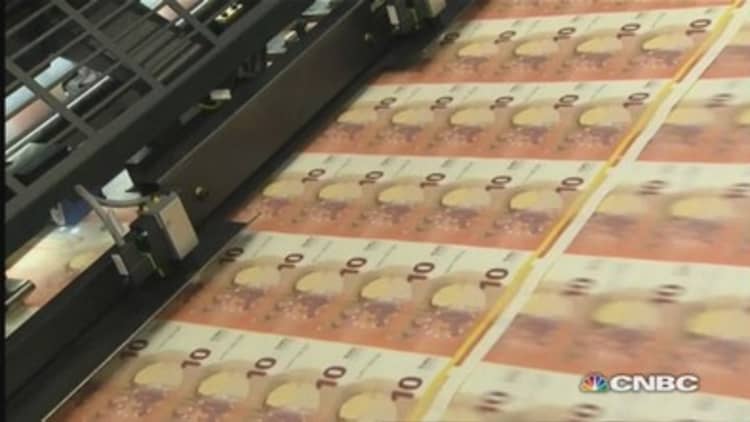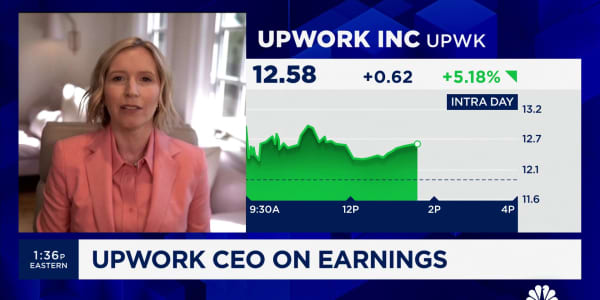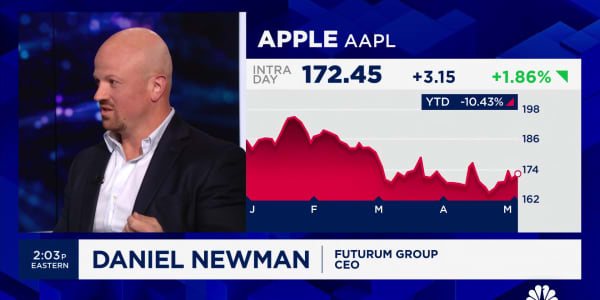The currency war is getting out of control.
A snapshot of the week so far in central banking:
The Monetary Authorty of Singapore surprised markets Tuesday night with a policy switch to pursue a slower pace of currency appreciation, its main policy tool.
Wednesday afternoon, New Zealand's Reserve Bank kept policy unchanged, but significantly altered its language, saying it expects to see a "further significant depreciation" for the kiwi and that "the exchange rate remains unjustified in terms of current economic conditions."
Hungary's central bank struck a decidedly dovish note, hinting at easier policy ahead.

The moves follow surprise policy changes from Denmark, India Canada and Switzerland earlier this month. That includes the European Central Bank. Despite a great deal of anticipation, Mario Draghi managed to surprise and impress financial markets with the ECB's trillion-euro bond purchase program.
Read MoreSingapore surprises with easing, clubbing currency
"The trend of central bank surprises continues, adding volatility to markets and highlighting a more uncertain global policy stance but one that is partially centered on (foreign exchange) ahead," Camilla Sutton, chief FX strategist at Scotiabank, wrote in a note this week. "An environment of increased volatility and uncertainty is typically U.S. dollar positive."
The U.S. dollar has been the beneficiary of those moves and easy policies. In 2015 alone, the dollar has strengthened nearly 7 percent against the euro, more than 7 percent against the Canadian dollar and 6 percent against the New Zealand dollar.
Over the past 12 months, the moves are in the double digits, with the dollar strengthening more than 20 percent against Sweden's and Norway's currencies, more than 17 percent against the euro and 13 percent against the yen.
So far, the Federal Reserve has not interfered and, in contrast to other central banks, it is not making moves or talking down its currency.
In its policy statement Wednesday, the Fed added "international developments" to the list of factors it's monitoring in deciding when to raise interest rates. After the Fed statement, the dollar strengthened against other major currencies, including the euro.
Read MoreFed seen remaining patient with rates
While many economists and strategists, not to mention the Treasury market, interpreted that additional risk factor as subtly dovish and suggesting a higher bar for raising interest rates, the dollar still managed to rally.
So with the Fed giving its blessing to dollar buying, which central bank could hit next?
Many are looking down under.
The Australian dollar, which often moves in tandem with commodity prices because it's an exporter, has been weakening on the back of falling prices of iron ore and oil prices. Speculation is building that the Reserve Bank of Australia may cut interest rates during its policy meeting Tuesday in response to other central bank cuts and lower inflation expectations, further pressuring the currency.
Before Australia next week, central banks in South Africa and Mexico are due to release policy decisions Thursday, and economists are increasingly leaning toward easier policy.
Read MoreStrong dollar creates 'tremendous systemic risk'
Credit Suisse economists and strategists predict the South African Reserve Bank will keep interest rates on hold, but "we think the risks are skewed toward a cut," according to firm's Global Macro Pulse report published this week.
Mexico's central bank is also set to keep policy rates on hold. But, according to Credit Suisse, "the deterioration in oil prices, surprise Bank of Canada cut and unexpected decline in (the consumer price index) last week reinforce our bias for a weaker peso ahead of the decision."
In other words, the cuts are contagious. Rate cuts weaken currencies and, in a growth-starved global economy, no country wants to be on the other side of that trade with a strong currency.
Who else may feel the pressure?
"We think the Bank of Korea will resume easing soon, following the global trend of looser monetary policy," wrote Brown Brothers Harriman currency strategists led by Marc Chandler.
Read MoreYuan is now world's fifth most-usedcurrency
The Bank of Korea next meets Feb. 17.
Poland is another central bank that strategists are eyeing ahead of next Wednesday's rate decision.
"The central bank is inching closer to a rate cut … deflationary conditions are likely to deepen and continue," Chandler wrote.
Brown Brothers Harriman's strategists also expect the Philippines and Taiwan will likely "join the parade of dovish central banks sometime this year."






